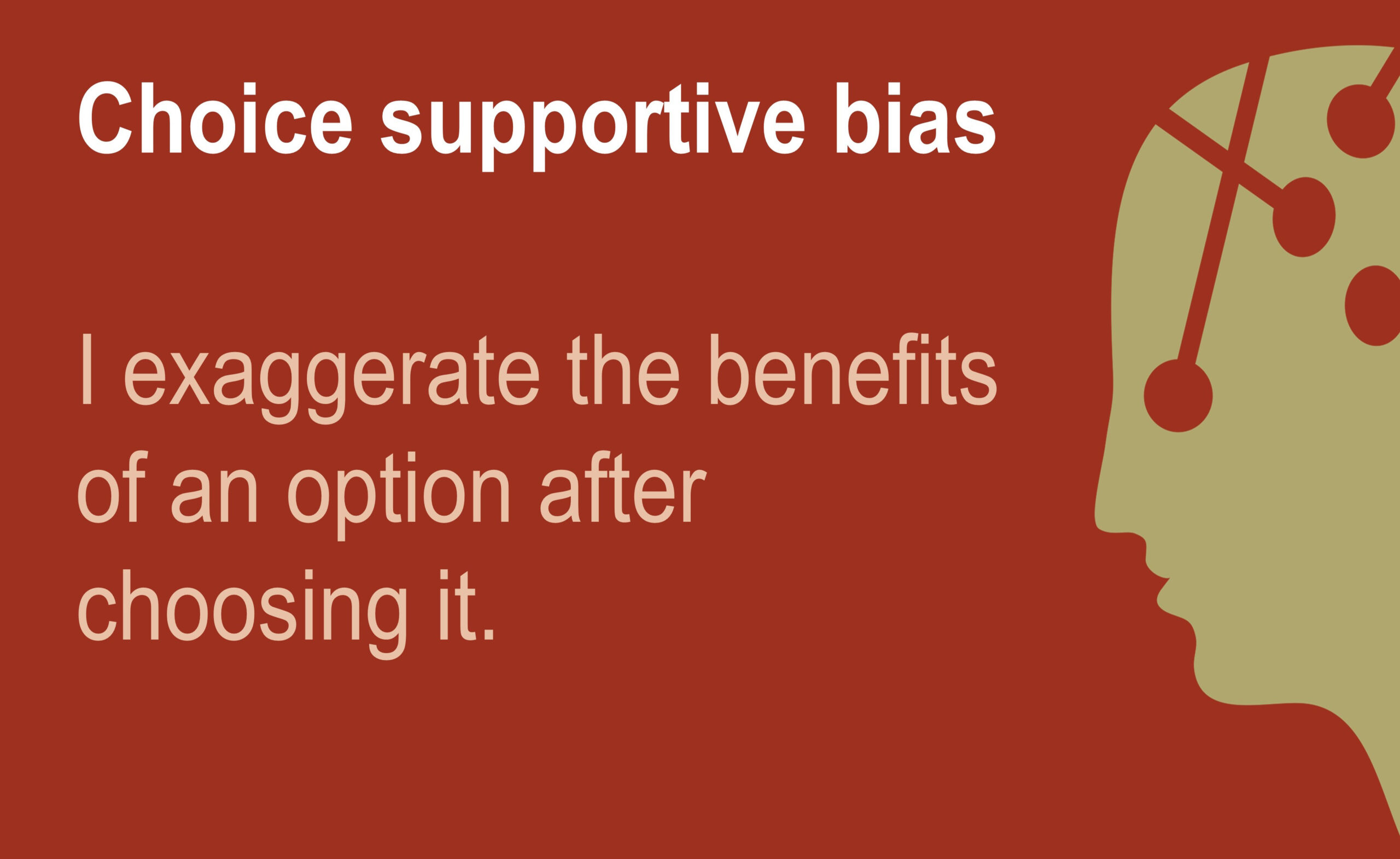Choice-supportive bias is a cognitive bias in which individuals retroactively ascribe positive attributes to a choice they made, even if the decision had negative outcomes or was made with limited information. People tend to justify their past decisions by emphasizing the positive aspects and downplaying the negative ones.
Explanations:
Choice-supportive bias is related to cognitive dissonance and the need to reduce discomfort associated with past decisions. To maintain a positive self-image, individuals tend to view their decisions as wise and favorable in retrospect.
Examples:
Buying a Faulty Product: After purchasing a malfunctioning product, a person might convince themselves that it was still a good choice because it was on sale or because they liked the packaging.
Choosing the Wrong Career: Someone who is unhappy in their career may rationalize their choice by focusing on the salary or benefits, even if the work is unfulfilling.
Selecting a Flawed Investment: An individual who invested in a failing business may emphasize the initial potential and downplay the financial loss.
Solutions:
Self-Reflection: Encourage self-reflection and acknowledge that not all decisions will be perfect or yield positive results.
Objective Evaluation: Consider decisions from a more objective standpoint, weighing both the positive and negative aspects of each choice.
Learn from Mistakes: Use past decisions as learning opportunities to make more informed and rational choices in the future.
Avoid Rationalization: Be aware of the tendency to rationalize decisions and consciously work to avoid excessive justifications for choices.
Addressing choice-supportive bias involves being aware of the inclination to rationalize and justify past decisions, even when they didn’t lead to positive outcomes. By acknowledging mistakes and learning from them, individuals can make more informed choices in the future.
